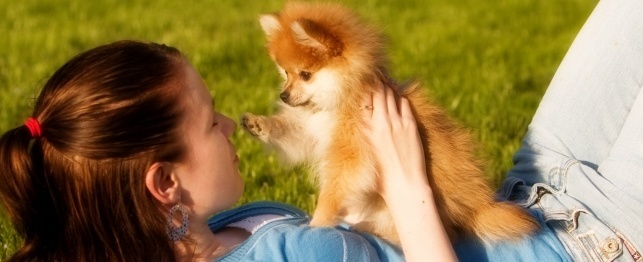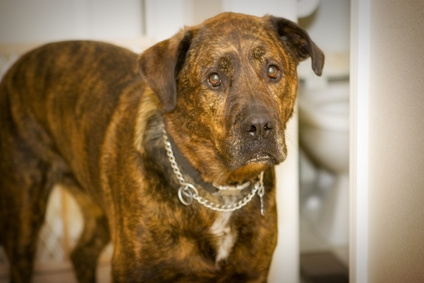For humans, receiving vaccinations is a critical part of preventing the spread of viruses and a number of debilitating diseases. The number of lives saved by vaccines is immeasurable. Dogs are just as susceptible to harmful microorganisms as humans. Without the immunization offered from vaccinations, a dog\'s immune system would not likely be able to ward off foreign antigens. As a result, there would be a risk to his health and life.
Typically, puppies enjoy a level of immunization from their mother\'s milk (much like humans). Unfortunately, it only lasts for a few weeks, while the puppy is most vulnerable. Once he has reached 6 weeks of age, the immunization begins to wear off. Dog vaccinations pick up where the mother\'s milk leaves off. They protect the puppy from canine distemper virus, parainfluenza, bordetella, and rabies. Below, we\'ll look more closely at how vaccinations prevent rabies. Plus, we\'ll explain when your dog needs to receive his shots.
Preventing Rabies
Rabies is an incurable disease that spreads virally and attacks the central nervous system. It is transmitted through the saliva of animals that are already infected. Your dog needs to receive an anti-rabies vaccination for a couple of reasons. First, rabies is intensely dangerous, even for humans. If someone is bitten by an infected dog, it is possible for that person to die from the disease. Vaccinating your dog prevents its spread.
Second, dogs come into contact with other animals frequently. As such, they have a heightened exposure to the disease. Because contracting rabies is usually fatal for dogs, owners should make sure they receive the necessary vaccination.
Age And Application
Most veterinarians suggest beginning vaccinations for your dog when he is 6 weeks old, at which point he should receive a combo-vaccine. He should receive the same combo shot at 9 weeks. At 12 weeks, your dog should receive his first rabies vaccination (though some veterinarians will wait until the 15th week). He should have another combo-vaccine at 15 weeks. As an adult dog, he should receive another combo along with a rabies vaccination.
There are other vaccines that a veterinarian may suggest for your dog, depending upon the level of risk that exists. For example, if coronavirus is a risk, a vet will often suggest vaccinating your dog at 6 and 9 weeks. Similarly, if there is a concern about leptospirosis or Lyme disease, a vet may recommend the appropriate vaccinations at 12 and 15 weeks.
Raising A Healthy Puppy
While it is possible for owners to vaccinate their dogs at home, many breeders recommend that a veterinarian do it. They have the expertise to identify when certain vaccines are appropriate. They can also administer them more effectively. The most important thing to remember is that your dog cannot afford to go without vaccinations. Make an appointment with a veterinarian to ensure your puppy gets the shots he needs to grow healthy and strong.

 Bonding with Your Puppy
Bonding with Your Puppy
Bonding with Your Puppy
Bonding with Your Puppy
 Homemade Tips for Keeping a Dog From Licking an Incision
Homemade Tips for Keeping a Dog From Licking a
Homemade Tips for Keeping a Dog From Licking an Incision
Homemade Tips for Keeping a Dog From Licking a
 8 Tips to Keep Your Pet in Tip -Top Shape this Winter
8 Tips to Keep Your Pet in Tip -Top Shape thi
8 Tips to Keep Your Pet in Tip -Top Shape this Winter
8 Tips to Keep Your Pet in Tip -Top Shape thi
 Ear Infections in Dogs: Causes, Diagnosis, Treatment, & Prevention
If your dog suddenly starts whining
Ear Infections in Dogs: Causes, Diagnosis, Treatment, & Prevention
If your dog suddenly starts whining
 How to Solve Dog Skin Odor
How to Solve Dog Skin Odor
How to Solv
How to Solve Dog Skin Odor
How to Solve Dog Skin Odor
How to Solv